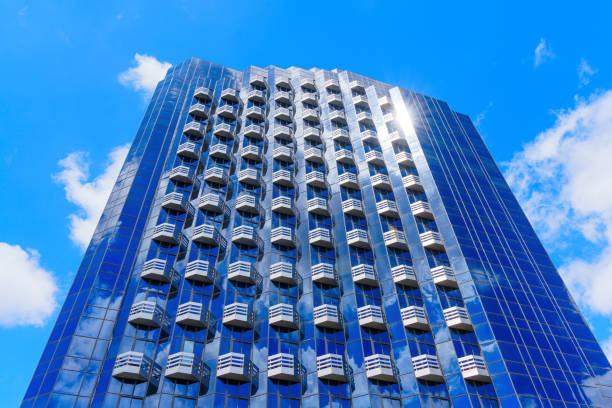Introduction: The Push Towards Energy Efficiency in Hospitality
As the global focus on climate change intensifies, the hospitality industry is stepping up its efforts to reduce its environmental impact. Energy-efficient practices are at the forefront of this movement, enabling hotels to lower their carbon footprint while simultaneously reducing operational costs. This guide explores how leading hotels are implementing innovative energy-saving strategies and technologies to create a more sustainable and eco-friendly hospitality experience.
1. Key Energy-Efficient Practices in Hotels
1.1. Adopting Renewable Energy Sources
- Solar Panels: Hotels are installing solar panels to harness the power of the sun, generating renewable energy for electricity and heating. This reduces reliance on fossil fuels and decreases greenhouse gas emissions.
- Wind Turbines: Some hotels use wind turbines to generate electricity, particularly in areas with consistent wind patterns. This renewable energy source complements other green practices.
1.2. Implementing Energy-Efficient Technologies
- LED Lighting: Switching to LED bulbs offers significant energy savings compared to traditional incandescent or fluorescent lighting. LEDs use less energy, have a longer lifespan, and produce less heat.
- Smart Thermostats: Smart thermostats automatically adjust heating and cooling based on occupancy and weather conditions, optimizing energy use and improving guest comfort.
- Energy-Efficient Appliances: Hotels are replacing outdated appliances with ENERGY STAR-rated models that consume less energy and water, including refrigerators, washing machines, and dishwashers.
1.3. Optimizing Heating, Ventilation, and Air Conditioning (HVAC) Systems
- Variable Refrigerant Flow (VRF) Systems: VRF systems provide efficient heating and cooling by adjusting the amount of refrigerant flowing to different areas based on demand.
- Centralized Control Systems: Centralized HVAC controls allow for better management of temperature settings across the hotel, reducing energy waste and improving efficiency.
1.4. Enhancing Insulation and Building Design
- High-Performance Windows: Installing double or triple-glazed windows reduces heat loss and improves energy efficiency by providing better insulation.
- Building Insulation: Proper insulation in walls, roofs, and floors helps maintain indoor temperatures and reduces the need for excessive heating or cooling.
1.5. Promoting Energy Conservation Practices
- Guest Participation: Hotels are encouraging guests to participate in energy-saving initiatives, such as reusing towels and linens, turning off lights and appliances when not in use, and using energy-efficient fixtures.
- Employee Training: Staff training programs focus on energy conservation practices, ensuring that employees are aware of and follow efficient procedures in their daily operations.
2. Examples of Top Hotels Leading the Way in Energy Efficiency
2.1. North America
- The Ritz-Carlton, Orlando, USA: This hotel integrates solar power into its energy mix, utilizes energy-efficient lighting and HVAC systems, and has implemented water conservation measures. The Ritz-Carlton also engages guests in sustainability practices through its “Eco-Friendly” initiatives.
- Fairmont Waterfront, Vancouver, Canada: The Fairmont Waterfront features a green roof, energy-efficient systems, and a commitment to reducing its carbon footprint. The hotel’s sustainability efforts include extensive waste reduction and water conservation programs.
2.2. Europe
- Hotel Sustainable, Amsterdam, Netherlands: Hotel Sustainable has achieved significant energy savings through solar panels, energy-efficient lighting, and green building certifications. The hotel also incorporates energy-saving technologies and promotes sustainable practices among guests.
- Hôtel de Crillon, Paris, France: This historic hotel has undergone extensive renovations to improve energy efficiency, including the installation of smart building systems and energy-efficient HVAC systems. The hotel also participates in local sustainability initiatives.
2.3. Asia
- Six Senses Laamu, Maldives: Six Senses Laamu uses solar power to generate electricity, features energy-efficient lighting, and incorporates sustainable building materials. The resort’s commitment to reducing energy consumption is part of its broader environmental conservation efforts.
- Puro Hotel, Bangkok, Thailand: Puro Hotel focuses on energy efficiency through the use of smart technology, including energy-efficient lighting and HVAC systems. The hotel also emphasizes water conservation and waste reduction in its operations.
2.4. Australia
- Crystalbrook Collection, Cairns, Australia: This collection of hotels incorporates a range of energy-efficient practices, including solar power, energy-efficient appliances, and green building materials. The Crystalbrook Collection also supports local environmental initiatives and sustainability projects.
- Yarra Valley Lodge, Victoria, Australia: Yarra Valley Lodge features energy-efficient design and operations, including water-saving measures and sustainable building practices. The lodge also offers eco-friendly amenities and promotes environmental stewardship among guests.
3. The Future of Energy Efficiency in Hospitality
3.1. Emerging Technologies
- Building Energy Management Systems (BEMS): Advanced BEMS use data analytics and real-time monitoring to optimize energy use across hotel properties, providing actionable insights for improving efficiency.
- Smart Grid Integration: Hotels are exploring integration with smart grids to better manage energy consumption and take advantage of renewable energy sources.
3.2. Increasing Guest Awareness
- Educational Programs: Hotels are providing guests with information about their sustainability practices and encouraging participation in energy-saving initiatives.
- Sustainability Certifications: Obtaining and promoting certifications from green organizations helps hotels showcase their commitment to energy efficiency and sustainability.
4. Conclusion: Embracing Energy Efficiency for a Sustainable Future
Energy-efficient practices are transforming the hospitality industry, helping hotels reduce their carbon footprint and operate more sustainably. By adopting renewable energy sources, optimizing technologies, enhancing building design, and promoting conservation practices, top hotels are setting a standard for environmentally responsible operations. As travelers become increasingly aware of environmental issues, choosing hotels that prioritize energy efficiency not only benefits the planet but also contributes to a more enjoyable and responsible travel experience.
